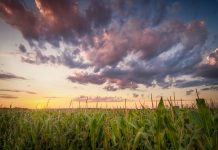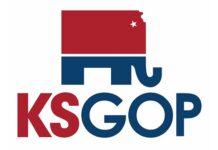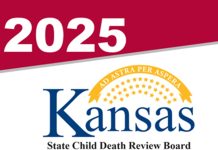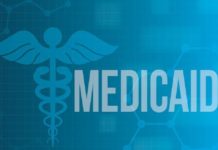(UPDATED to include comment from governor’s office)
A possible special session to draw new election districts for members of Congress could include legislation that would put a check on how the governor disperses money for a new federal rural health care program.
The so-called One Big Beautiful Bill passed by Congress establishes the Rural Health Transformation Program, creating a national $50 billion fund to help states reinvent rural health care through innovation, strategic partnerships and workforce investment.
Kansas could get $1.5 billion from the program over the next five years, and state lawmakers want controls in place to oversee how the money is spent.
They don’t want to see the money doled out the same way that federal COVID relief money was distributed, coming under criticism in state audits and later becoming embroiled in controversy involving a former – and now dead- Commerce Department staffer.
Senate Majority Leader Chase Blasi is proposing to create a six-member committee to oversee how the rural health care money is spent.
It would be made up of the majority leaders of the House and Senate, the minority leaders of each chamber and the chairs of the House and Senate budget committees.
They would have to sign off on any expenditures of the money proposed by the executive branch.
The committee also would have the power to amend spending proposals as necessary.
“It’s just to ensure that the money is going where it needs to go,” Blasi said. “This is a simple check and balance.”
The oversight would extend beyond the term of Democrat Gov. Laura Kelly, who has a little more than a year left in office, he said.
The proposal is anticipated to come up in a special session that might be called to draw new election boundaries for members of Congress.
“As appropriators, the Legislature should have a role in the oversight and distribution of these funds,” said Dinah Sykes, the top Democrat in the Senate from Lenexa.
“But as always, the devil’s in the details on what exactly that oversight looks like.”
Republican state Rep. Will Carpenter, chair of the House Health Committee, said lawmakers need a role in overseeing how the federal health care funds would be spent.
“I do believe there needs to be legislative oversight,” Carpenter said. “If we didn’t learn anything from the COVID money, we should have learned that.”
The governor’s chief of staff urged the Legislature to be careful how it approaches this proposed legislation
“Gov. Kelly has always welcomed legislative input where appropriate – and she will continue to,” Will Lawrence said in a statement.
“However, I would caution the Legislature to avoid its usual tendency to create overly bureaucratic processes with cumbersome red tape, especially in the cause of the Rural Health Transformation Program, which has an expedited and inflexible timeline issued by the Trump Administration,” Lawrence said.
Senate President Ty Masterson initially indicated he wanted to limit the special session to two topics: redistricting and banning transgender Kansans from changing their gender marker on driver’s licenses.
However, Masterson has backed off that a little bit to include property taxes and some other “time-sensitive” issues.
It was a move that some in the Senate believe encouraged senators to sign the special-session petition, which requires signatures from two-thirds of the Legislature.
House Speaker Dan Hawkins, however, has not committed to opening up the session to more than redistricting and gender markers on driver’s licenses.
The Rural Health Transformation Program calls for distributing $50 billion nationally with $10 billion each fiscal year from 2026 to 2030.
Half that money would be distributed equally in the approved states.
The other half of the money would be allocated by the Centers for Medicare & Medicaid Services based on a variety of factors including rural population, the proportion of rural health facilities and the financial wellbeing of rural health centers.
It is estimated that Kansas could get $500 million over five years from the sum that would be allocated equally among the states.
Kansas may also get another estimated $1 billion that would be distributed from the discretionary pot of money based on various factors.
Nearly two weeks ago, Kelly announced 14 appointments to the Kansas Rural Health Innovation Alliance, a group of stakeholders tasked with overseeing the application for the money and implementation of the Rural Health Transformation Program.
No lawmakers are on that panel.
“The Kansas Rural Health Innovation Alliance will play an instrumental role in ensuring that Kansas communities receive the maximum support and funding for their rural hospitals and health care facilities that stand to lose so much from federal funding cuts,” Kelly said.
“The organizations selected for the alliance have demonstrated an understanding of the challenges rural communities face in accessing health care, and a commitment to solving those challenges,” she said in a statement.
The members of the alliance include the Kansas Hospital Association, the Association of Community Mental Health Centers of Kansas, the Kansas Association of Local Health Departments, the Kansas Medical Society and the Kansas Health Institute, among others.
The group will work with the state’s application development team as it advances through the application process and distribution of the funding.
The application must be submitted by Nov. 5. The Centers for Medicare and Medicaid Services will announce the funding awards by Dec. 31.















